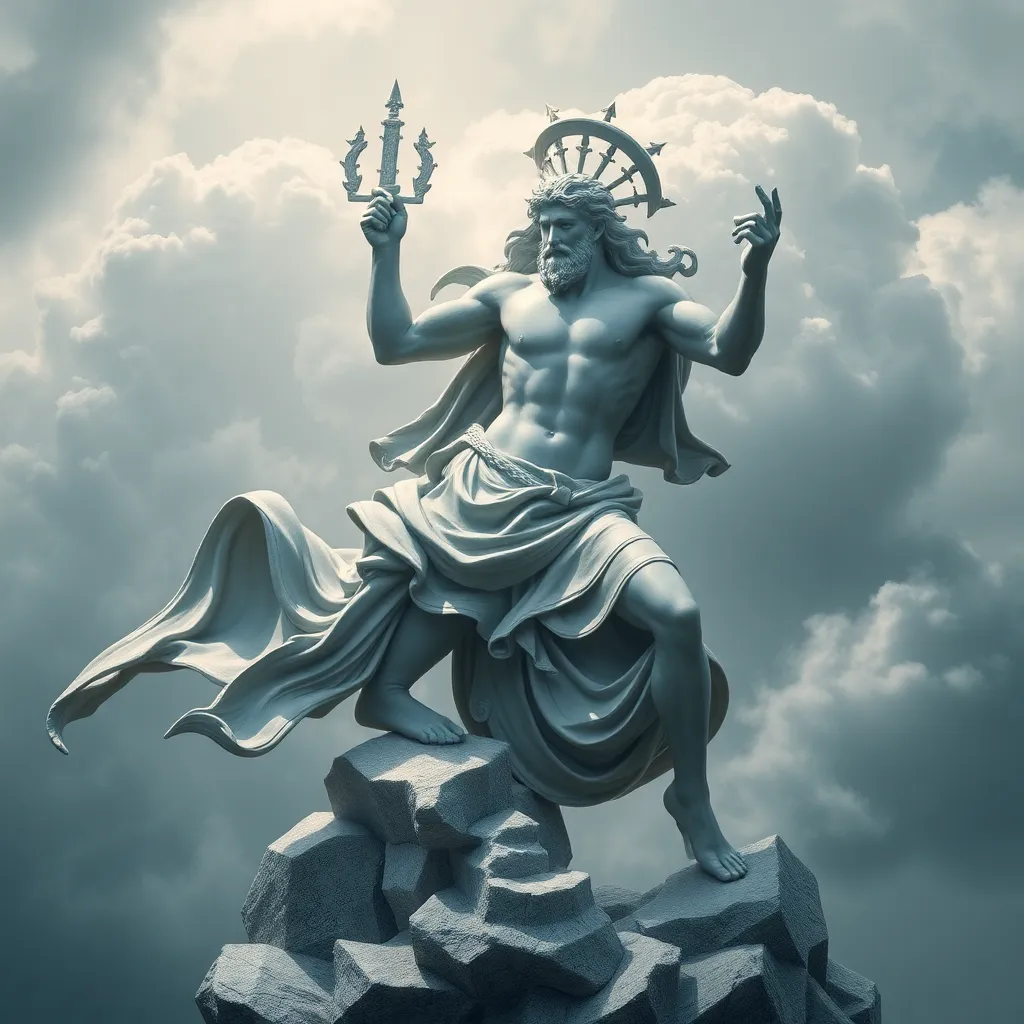The Myth of Perseus: A Study of Heroic Virtues
I. Introduction
The myth of Perseus is one of the most captivating tales from Greek mythology, embodying the spirit of heroism and adventure. This narrative not only showcases a hero’s journey but also reflects the values and beliefs of ancient Greek culture. Myths like that of Perseus serve as essential storytelling devices, imparting moral lessons and cultural norms.
This article aims to explore the heroic virtues embodied by Perseus, examining how his adventures resonate with the ideals of courage, cunning, and resilience, which are paramount in understanding heroism in both ancient and contemporary contexts.
II. Historical Context of the Perseus Myth
The story of Perseus has its origins in ancient Greek mythology, attributed to various sources including Hesiod and later works by Apollodorus. Perseus is famously known as the son of Zeus and Danaë, who was prophesied to bring about the downfall of his grandfather, Acrisius, the king of Argos.
Key events in the myth include:
- His birth and subsequent abandonment.
- The quest to slay Medusa, the Gorgon.
- Rescuing Andromeda from a sea monster.
- His eventual confrontation with Acrisius.
The cultural significance of Perseus in ancient Greece cannot be overstated; he embodies the ideal hero who overcomes great odds, reflecting the values of bravery and divine support that were revered in Greek society.
III. Defining Heroic Virtues
Heroism in mythology is often characterized by a set of defining traits that set heroes apart from ordinary individuals. These traits typically include:
- Courage in the face of danger.
- Wisdom and cunning to solve problems.
- Strength and physical prowess.
- A commitment to justice and protection of the weak.
Across various cultures, heroic virtues manifest in similar forms, reflecting universal ideals. In the case of Perseus, specific virtues stand out:
- Bravery: Facing Medusa without succumbing to fear.
- Resourcefulness: Utilizing gifts from the gods to achieve his goals.
- Compassion: Saving Andromeda from her fate.
IV. Perseus’ Journey: Trials and Triumphs
Perseus’ journey is marked by numerous trials and tribulations, each highlighting his heroic qualities. One of the most notable quests is his mission to slay Medusa, a task that seemed insurmountable. With the aid of divine gifts—such as a reflective shield from Athena, winged sandals from Hermes, and a magical sword—Perseus demonstrates both bravery and strategic thinking.
Key moments that showcase his heroism include:
- Using the shield to view Medusa’s reflection and avoid her petrifying gaze.
- Decapitating Medusa and using her head as a weapon later on.
Divine intervention plays a crucial role in Perseus’ success, highlighting the importance of support from the gods in the lives of heroes.
V. The Role of Female Figures in the Myth
Female characters in the Perseus myth contribute significantly to the narrative, both as adversaries and allies. Medusa, once a beautiful maiden, becomes a monstrous figure due to the curse of Athena. Her narrative raises themes of victimhood and vengeance.
Andromeda, on the other hand, represents the ideal of the damsel in distress, ultimately becoming Perseus’ wife. Their relationship illustrates the balance of power and the complexities of heroism.
The portrayal of women in hero myths often reflects societal attitudes towards gender roles, and the dynamic between Perseus and these female figures challenges traditional narratives of masculinity and femininity.
VI. The Legacy of Perseus in Literature and Art
The myth of Perseus has profoundly influenced classical literature, inspiring countless works from ancient times to the present. Figures like Ovid and Apollonius of Rhodes have portrayed his story in various forms, each adding layers to his character.
In visual arts, Perseus has been depicted in numerous sculptures and paintings, capturing the dramatic moments of his adventures. Notable representations include:
- Benvenuto Cellini’s sculpture of Perseus holding Medusa’s head.
- Peter Paul Rubens’ paintings that illustrate his heroic feats.
Modern adaptations, including films and novels, continue to reinterpret Perseus, ensuring that his legacy endures in contemporary culture.
VII. Lessons from Perseus: Heroism in Contemporary Context
The virtues exemplified by Perseus remain relevant in today’s society. His story teaches us valuable lessons about:
- The importance of courage in overcoming personal challenges.
- The value of intelligence and strategy over brute strength.
- Compassion and the duty to protect those who cannot protect themselves.
Perseus’ journey inspires modern notions of heroism, illustrating that true heroes can emerge from adversity and that moral integrity is paramount in any heroic endeavor.
VIII. Conclusion
In summary, the myth of Perseus encompasses key themes of heroism, demonstrating the virtues of bravery, cunning, and compassion. His adventures highlight the cultural values of ancient Greece while offering timeless lessons that resonate today.
Perseus stands as a lasting symbol of heroism, illustrating the significant role myths play in shaping our understanding of human virtues and the complexities of our moral landscape.




